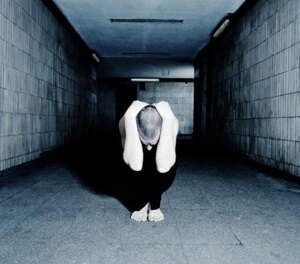Wednesday, March 19, 2008
Monday, March 3, 2008
Q6 - The Mood

Q5 - A Different Ending

Q4 - The Climax

Personally, I think the climax is when Piggy dies.
The situation is very much like this:
Jack and two other boys of his tribe had attacked Ralph's group of boys during the middle of the night. After the attackers are gone, Ralph and Piggy quickly realize that Piggy's glasses has been taken. Ralph is outraged by this act of thievery. The next day he takes Piggy and Samneric with him to go to Jack and ask to have the glasses back. Soon Ralph and his friends are confronting a massive group of savages, each behind a painted mask, unrecognizable as the civilized boys they used to be. Ralph fights Jack, stops, and tries to convince the boys to give back the glasses. Meanwhile, Roger is learning the thrill of dropping boulders on people, very nearly killing them.
Piggy then holds out the conch, the last remaining symbol of organized society, and tries to speak. As he delivers his logical speech, the event that shreds the last pieces of humanity apart happens: Roger rolls an enormous boulder onto Piggy, thus succeeding in killing him outright. Piggy's body is soon washed away into the ocean, and the boys start to attack Ralph.
Sunday, March 2, 2008
Q3 - The Theme

Q2 - A Significant Passage
This passage is from the point where Jack hunts down his first pig while the fire has gone out, and a ship passes by...
Ralph spoke.
*"You let the fire go out."
Jack checked, vaguely irritated by this irrevelance but too happy to let it worry him.
**"We can light the fire again. You should have been with us, Ralph. We had a smashing time. The twins got knocked over--"
"We hit the pig--"
"--I fell on top--"
***"I cut the pig's throat," Jack said, proudly, and yet twitched as he said it. "Can I borrow yours, Ralph, to make a nick in the hilt?"
The boys chattered and danced. The twins continued to grin.
****"There was lashings of blood," said Jack, laughing and shuddering, "you should have seen it!"
"We'll go hunting every day--"
Ralph spoak again, hoarsely. He had not moved.
*"You let the fire go out."
This repetition made Jack uneasy. He looked at the twins and then back at Ralph.
"We had to have them in the hunt," he said, "or there wouldn't have been enough for a ring."
He flushed, conscious of a fault.
**"The fire's only been out an hour or two. We can light up again--"
He noticed Ralph's scarred nakedness, and the sombre silence of all four of them. He sought, charitable in his happiness, to include them in the thing that had happened. ****His mind was crowded with memories; memories of the knowledge that had come to them when they closed in on the struggling pig, knowledge that they had outwitted a living thing, imposed their will on it, taken its life like a long satisfying drink.
He spread his arms wide.
****"You should have seen the blood!"
The huinters were more silent now, but at this they buzzed again. Ralph flung back his hair. One arm pointed at the empty horizon. His voice was loud and savage, and struck them into silence.
*****"There was a ship."
This passage is the conversation between Ralph and Jack after the ship disappears over the horizon along with the hope of rescue. The hunters that Jack ruled over were in charge of keeping the fire alive, but Jack took all the boys to hunt down pigs. Due to that action, the fire burned out and the ship passed by without noticing the boys at all. This causes Ralph to be angry with Jack, and for the first time the two main characters have an obvious conflict.
This part of the story is the point in the plot where the fire seems to lose its importance, thus causing the connection between the boys and civilization to become thinner. Several statements here show how the values of the boys have become.
*Ralph openly accuses the boys of what they have done, and this act shows how Ralph considers being rescued as the most important thing above all.
**Jack states that the fire has been out for only a while, and that it can be lighted once more. This is proof that Jack no longer considers being rescued as a priority. He is already losing his rational way of thinking.
***Jack proudly says that he killed the pig, but he twitches as he says so, as if it was a rather repulsive fact. This single fact is the lingering trace of Jack's reluctance of killing. This is the very last time Jack shows the civilized reaction towards slaughter.
****Jack practically enjoys how he made another living creature spill out its blood and its life. This part is where the inner savageness of a person is shown, and this scene is where Jack finally is metamorphed into the savage he becomes had in himself all along.
*****This one statement of the truth is where Ralph's anger comes from. This terrible fact is also a synbol of how the hope in everybody is crushed. From this point, the relationship between Ralph and Jack is torn down, and somehow the sommunity among the boys from then on slowly turns upside down.
I personally think this passage is interesting, because it is a turning point in the story, where a conflict shows itself, relationships are flipped over, and the hope that the boys had turns into something dark and monstrous. Also, the fire, which signifies the connection between the boys and the civilization of the world, slowly loses its importance. In conclusion, this passage signals the starting point of where the boys slowly lose interest in the world where they belonged and start to feel actual bloodlust.
Saturday, March 1, 2008
Q1 - The Characters

